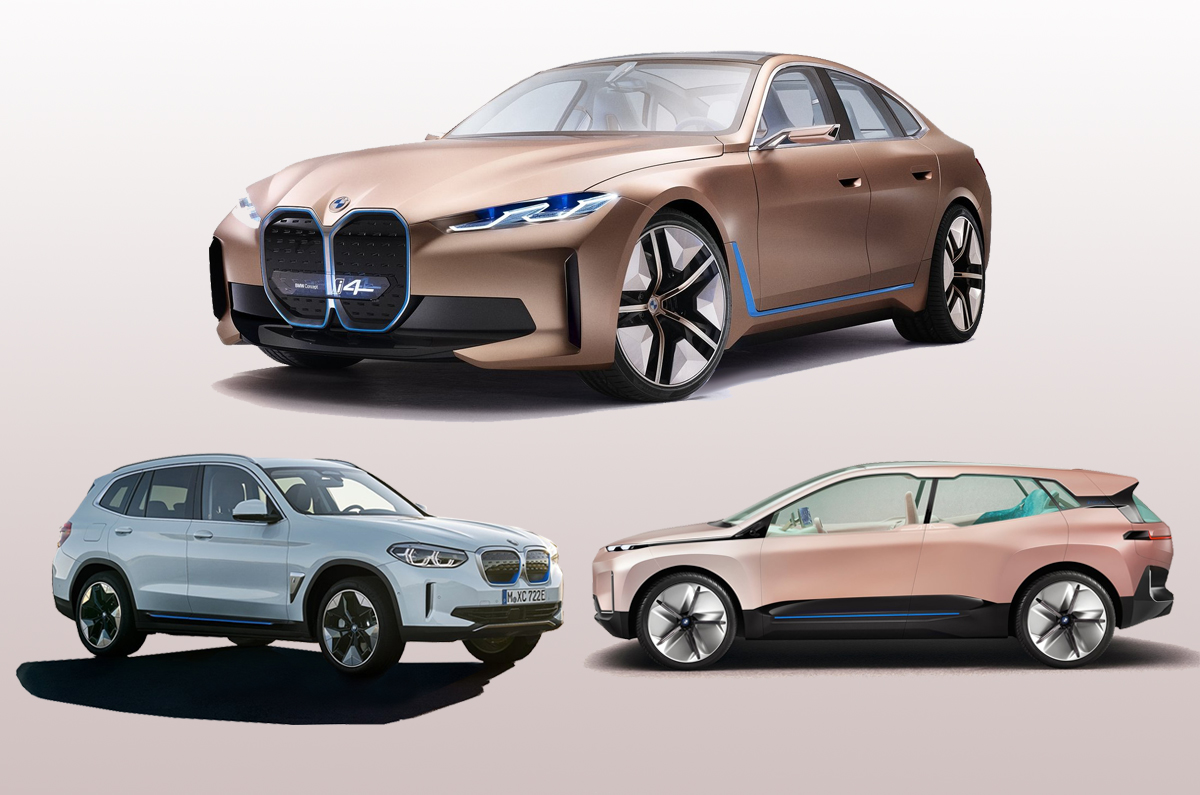
The BMW electric car offerings are going to be dramatically ramping, with new i5 and i7 sedans set to headline an expanded line-up of nine models that will underpin an ambitious 10-year growth plan.
- Under this plan, BMW plans to sell over 7 million PHEVs and EVs by the end of 2030
- BMW will continue to offer both petrol and diesel engines for the foreseeable future
- The new models include the i1, iX1, i3, iX3, i4, i5, iX5, i7 and iX7
The carmaker will launch the new cars as part of its new ‘Power of Choice’ sustainability plan, under which it has committed to selling more than seven million plug-in hybrid (PHEV) and pure-electric vehicles (EV) by the end of 2030.
What does BMW hope to achieve with the ‘Power of Choice’ plan?
BMW expects to sell 4.6 million fully electric vehicles within the next 10 years, an average of 4,60,000 per year and a huge increase from the 42,249 sold last year (all of them an i3). It also expects to sell 2.4 million plug-in hybrids and has already committed to offering PHEV variants of every existing model in its line-up.
Also, under this model the BMW plans to offer up to four different powertrain variants – petrol, diesel, plug-in hybrid and pure-electric. The carmaker says that it will continue to offer both petrol and diesel engines in each of its main model lines for the foreseeable future.
What will the new BMW all-electric models be?
BMW’s sole electric production car to date is the i3. But while that’s a bespoke EV, the firm has now committed to offering electric versions of existing models in the coming years, starting with the iX3 in 2021. Here are all the cars – some confirmed, some not – that are still under development.
BMW i1
An electric extension to the new 1 Series line-up. Like its sister model, the iX1 crossover, it will be based on the FAAR platform. Key competitors will include the Volkswagen ID.3.
BMW iX1
The iX1 is based on the third-generation X1 SUV, due in 2022, and described by BMW insiders as an indirect replacement for the original i3, with a raised seating position and relatively compact dimensions.
BMW i3
With the current i3 hatchback going out of production, it is likely that the 3 Series-based EV sedan will adopt the vacated i3 name. The new i3, although not yet confirmed, will be based on the i4 fastback but take its styling from the 3 Series sedan. Insiders don’t rule out the possibility of a 3 Series Touring-based estate.
BMW iX3
This rear-wheel-drive SUV, is based on the current X3. It’s the first to use BMW’s fifth-generation electric drive system and new battery technology that will soon be adopted by other BMW EVs.
BMW i4
The i4 is based on the new second-generation 4 Series Gran Coupé and targeted directly at the Tesla Model 3. There will be various power outputs, with the range-topper tipped to deliver 530hp.
BMW i5
The eighth-generation 5 Series, due in 2023, will spawn an electric model. The i5 will initially be a sedan, but an estate version could be offered in select international markets. Competitors will include the production version of the Volkswagen ID Vizzion and the Mercedes-Benz EQE.
BMW iX5
Already in pilot-production at BMW’s Dingolfing factory and is due internationally in 2021. The SUV that started life as the iNext concept offers a base range of 547km, rising to 740km with an optional 110kWh battery. It’s also planned to support level-three autonomous technology.
BMW i7
BMW’s future EV flagship is based on the next 7 Series sedan, which is due in 2022. Sources suggest it will share much of its mechanicals with the i5 and iX5 and achieve a range of up to 740km. The i7 will compete against other upcoming EV models like the Mercedes EQS flagship sedan and next-gen Jaguar XJ.
BMW iX7
It has yet to be approved, but sources suggest that iX7 design proposals have been developed. If given the green light, the iX5’s seven-seat sister will land in international markets around 2025.
What are the plans for Mini?
While plans for Mini are less defined, our sister publication Autocar UK has confirmed the British brand is planning to build on its recently introduced electric Mini Cooper SE three-door hatchback, with at least two new electric cars, including uniquely styled SUVs based on the iX1 and iX3.
Is BMW working on any other powertrain?
In a previously announced strategy being driven by recent developments in China, BMW has also confirmed that it will start offering hydrogen fuel cell electric powertrains on extended leasing programmes in certain models and markets, starting with the X5 next year.
Will BMW bring these EVs to India?
As things stand, BMW has not confirmed any potential timeframes for launching the above mentioned EVs in India. Although, as we had previously reported, the all-electric Mini Cooper SE is being evaluated for India. Besides this, the carmaker recently launched the 3 Series GT Shadow Edition in our market, as well as a new 320d Sport variant.











0 komentar:
Post a Comment